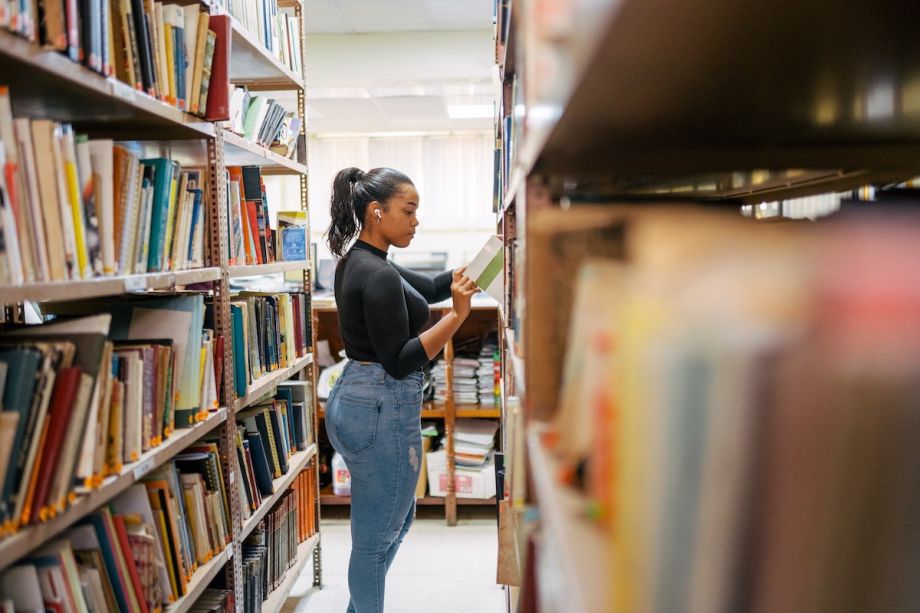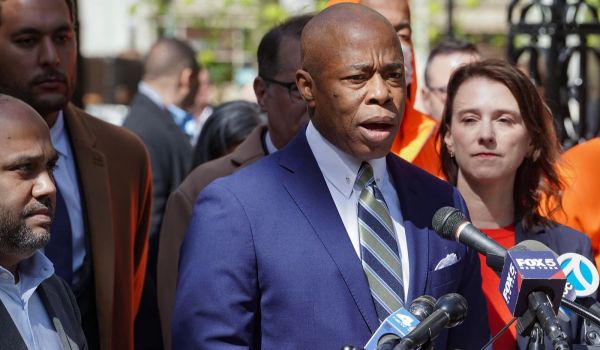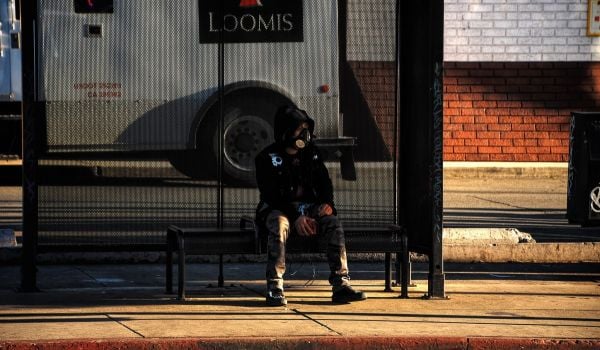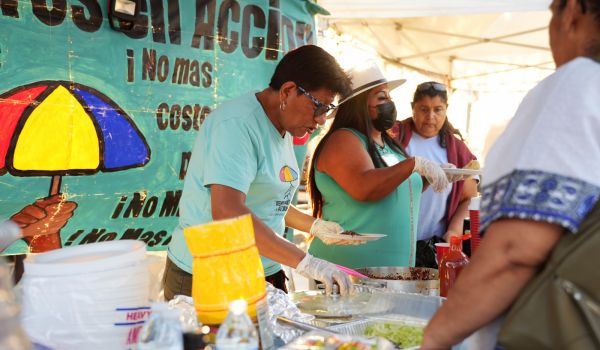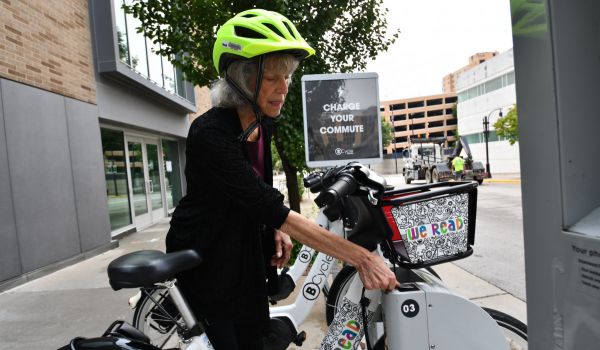Welcome to Weekly Wrap, our Friday round up of stories that explain the problems oppressing people in cities and elevate the solutions bringing us closer to economic, environmental and social justice.
Do you have news or an event that should be in The Weekly Wrap? Email us details at wrapped@nextcity.org — and it might just get included in next week’s edition!
p.s. Are you following us on social media? If not, tap the buttons in the footer of this page to join us across our platforms.
Illinois Attempts to Ban Book Bans
A law designed to “ban book bans” in Illinois was signed into law by Governor J.B. Pritzker on Monday, according to the Chicago Sun Times. The law blocks state grant funding to schools and libraries that do not adhere to the American Library Association’s Library Bill of Rights, which says in part, “Materials should not be proscribed or removed because of partisan or doctrinal disapproval” and “Libraries should challenge censorship in the fulfillment of their responsibility to provide information and enlightenment.”
The Association said attempts to ban books reached a 20-year high last year. While the law punishes libraries that give in to demands to ban books, the law’s text does not appear to actually preempt local book ban laws in the state.
New York City Passes Mandatory Food Waste Collection
New York City has finally passed a law that will make it mandatory for all residential buildings to recycle food waste — including through composting — by 2024, City Limits reports. A plan to mandate composting was suggested by former Mayor Michael Bloomberg in 2013 and a voluntary program was introduced, then scaled back by former Mayor Bill de Blasio.
A voluntary composting pilot was rolled out in Queens in 2021, as green bins were delivered to every residence and commercial business in the borough. According to the new law, residential buildings that don’t separate food waste from trash for pickup will receive fines, but how much has not yet been determined. The city will need to dramatically scale up its composting infrastructure to comply with the law, according to City Limits.
Massachusetts Establishes Community Climate Bank Focused On Housing
Massachusetts will set up a new “Community Climate Bank,” which will bring in federal and private funding to be used on affordable housing retrofits focused on climate resiliency, The Boston Globe reports.
The bank will be a part of MassHousing, the state bank that already finances affordable housing projects, and will initially be funded with $50 million in seed money from the state’s Department of Environmental Protection. According to the Globe, the bank will be a scaled back version of what Governor Maura Healey pitched on the campaign trail, when she proposed the bank “to facilitate investment in low-carbon, climate-resilient infrastructure and empower it to utilize other economic tools to attract and retain companies that will create new clean energy jobs, particularly in low-income communities.”
California Transit Gets Cap and Trade Funds
Governor Gavin Newsom restored $2 billion in transit funds that were excluded in his May budget proposal. And the state’s transit agencies will get an additional $1.1 billion in cap and trade funds, the San Francisco Chronicle reports.
While the funding will help San Francisco’s Bay Area Rapid Transit avoid imminent service cuts, the transit agency could still find itself short on funds in coming years without more sustainable funding, according to the Chronicle. Transit agencies across the country are adapting to cratering fare revenue as a result of remote work and have been leaning on state governments to fill the gaps.
Legislators Who Own Property Less Likely To Back Good Cause
According to a New York Focus analysis, legislators in New York who own rental housing were less likely to vote for tenant-friendly legislation including Good Cause, which failed to pass at the end of the legislative session and in April’s budget.
NY Focus notes that 72% of lawmakers in the state own property, compared to just 54% of New York residents. Eighty-five percent of legislators who are renters supported Good Cause, whereas only 44% of legislators who own their homes supported it. According to Housing Justice For All campaign coordinator Cea Weaver, this is because “we have created a system where everybody’s end of life care and wealth is dependent on property values continuing to rise, and good cause lightly limits property values.”
Curated by Deonna Anderson
MORE NEWS AND RESOURCES
-
Other cities may be joining New York in charging drivers going downtown. CNN
-
In Minnesota and the Dakotas, descendants of slaves will receive a portion of a $50 million grant. Applications for the fund open on Juneteenth: June 19, 2023. The Root
-
City leaders are calling for a national ban on right turns at red lights. Fast Company
-
Indigenous Food Lab, the latest venture from award-winning chef Sean Sherman, seeks to “reintegrate Native foods and Indigenous-focused education into tribal communities across North America.” Native News Online
EVENTS
-
Resource Generation has been hosting a series of conversations about transforming philanthropy. There’s one more event about reparations and regenerative philanthropy. June 20 at 7pm Eastern. Learn more about each of them and register here.
-
Colorlines hosted a conversation about Black and Asian American and Pacific Islander solidarity. You can catch the replay here.
-
Plus, check out Next City’s upcoming events here.
This article is part of The Weekly Wrap, a newsletter rounding up stories that explain the problems oppressing people in cities and elevate the solutions bringing us closer to economic, environmental and social justice. Click here to subscribe to The Weekly Wrap newsletter.

Roshan Abraham is Next City's housing correspondent and a former Equitable Cities fellow. He is based in Queens. Follow him on Twitter at @roshantone.



